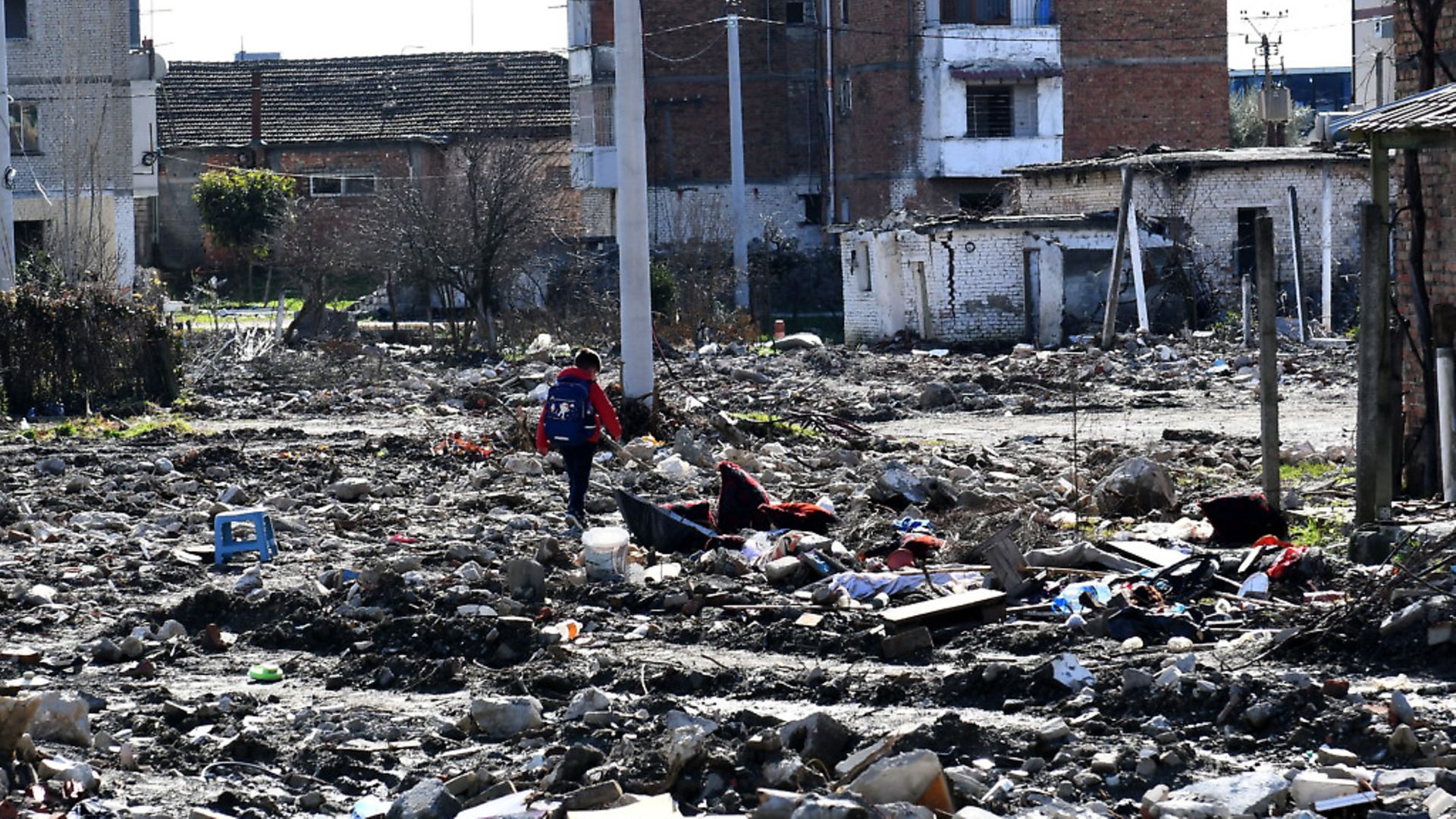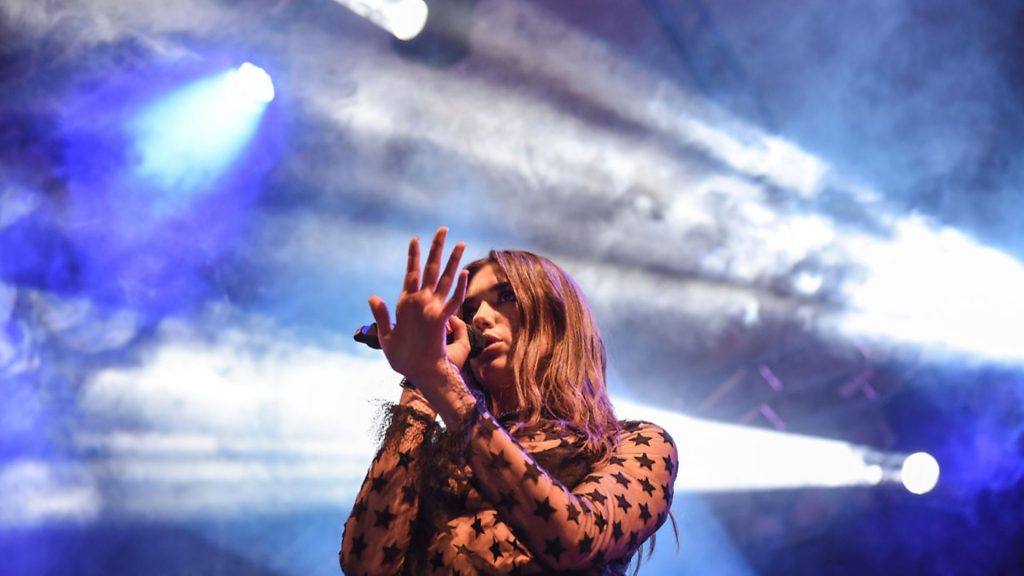
ALASTAIR CAMPBELL on Albania’s bid to join the European Union at a time when the UK rushes to leave.

On Monday, the leader of a European country went to Brussels to ask for help. The country is Albania, and prime minister Edi Rama’s plea followed a major earthquake last November which killed 51 people, injured many more, left thousands homeless and reduced hundreds of buildings to rubble.
Measuring 6.4 on the Richter scale, it was 2019’s deadliest earthquake, anywhere in the world.
The country’s emergency services reacted pretty well in the immediate aftermath, rescued many, and worked well with the expert help sent from abroad. But once the dead were buried, and the immediate shock subsided, came the longer-term reckoning about the cost of rebuilding the shattered buildings, roads and bridges. Around a billion euros. Money that a small, poor country like Albania can ill afford. Hence Rama’s mission to the donors’ conference in Brussels.
I am guessing you might vaguely be aware the earthquake happened. It could not compete with whatever Donald Trump was tweeting that day, and the UK election was in full swing, but it made the back end of a few bulletins. When Dua Lipa and Rita Ora expressed solidarity on social media, even the tabloids, grateful for the chance to use pictures of sexy pop stars, got a little bit interested.
Dua Lipa, one of several children of Kosovar Albanian parents who went to the same school as my daughter Grace, then released a charity T-shirt to raise funds for the victims, which got the celebrity sites excited.
It was around the time she and Grace were starting primary school in the late 1990s that I was first developing a keen interest in the Balkans, especially Kosovo and Albania. The Blair-haters like to define Iraq as the totality of the New Labour record on foreign policy, which has created the strange virus of which I wrote here recently, causing Labour leadership contenders to feel they can say nothing bad about Jeremy Corbyn, who lost two elections and so delivered very little by way of real progress for real people, and nothing good about triple winner Tony Blair, who delivered much.
It also overlooks the remarkable role TB played in reversing Serb leader Slobodan Milosevic’s ethnic cleansing of Kosovar Albanians. I still get Kosovan taxi drivers in London refusing to take a fare out of thanks for the role the Blair government played there, and I have met some of the children in Pristina, the Kosovan capital, who were named ‘Tonibler’ in recognition of the leader their parents’ view, with Bill Clinton, as their saviour.
Fast forward a decade or so from the conflict in Kosovo, and I get contacted out of the blue by Edi Rama, then leader of the opposition Socialist Party, and asked to help with his election campaign. It was partly his personality, but also his evident support for and understanding of the principles underlying New Labour’s approach to policy and campaigns, that made me say yes.
Formerly an international basketball player and a successful artist, he has a quirky, intelligent mind, is well read and thinks big for his small country. Two election wins later, he has now been prime minister for seven years, and though the leader of a country like Albania will never be able to compete for attention with the Trumps and the Johnsons, the Macrons and the Merkels, he has a strong reputation in diplomatic circles (not least with the German chancellor, who has been an important ally).
When he spoke in Brussels on Monday – an event about which you are probably learning about for the first time, given the general and growing insularity of our media – he could have stuck to the relatively easy pitch… ‘we are poor, you are rich. We had a terrible tragedy, we need your money to rebuild our country, so here I am, cap in hand, begging for your support. Please give generously’.
Of course, he did a bit of that, gave them the stats about the deaths and the damage and the kind of sums they needed to get the country back on its feet.
But he did something else. He explained that there are physical earthquakes, and there are political earthquakes, and that Albania was hit by both types last year. While for the families of the 51 people who died, the physical earthquake was the worst thing ever to befall them, for the country as a whole, and Albanians all over the world, he said the political earthquake a few weeks earlier had been “a body blow” which left them feeling “hurt, shocked, humiliated”.
He was speaking of the decision, led by France, to prevent Albania and North Macedonia, both ‘official EU candidate countries’ from beginning official membership talks. The reason Albanians felt so distraught, he said, was because they had undergone huge reforms, not least to previously corrupt legal and judicial systems, winning US and EU support every step of the way. Macedonia even endured the humiliation of changing its name to North Macedonia to address some of the political issues the EU wanted resolved. To no avail.
“Please, please, understand, and appreciate, the depth of our feelings,” Rama said on Monday. “They spring from our understanding and appreciation of the good your Union does in the world, and our desire to be part of that. But they spring too from frustration – we did everything that was asked of us, yet the answer was ‘no’. All guidelines and directives followed. But the answer was ‘no’.”
He went on: “I thought long and hard about using the word earthquake to describe both of these awful events. I am here after all to ask for your help, and perhaps some might take me amiss on what I have said about the politics. But I feel it is important to spell it out… for the November earthquake, the price is very clear, and we must try to raise the funds as best we can.
“For the political earthquake of October, how do you calculate the price of hope that suddenly feels shattered? It is a high price, not measurable in euros or any other currency.”
There was a risk in Rama being so blunt about the damage he felt the Macron-led rejection did to his country. But perhaps he was encouraged by comments the French president made last weekend at the Munich Security Conference. “We are waiting for the [Commission] report in March,” he said. “Depending on that, if the results are positive and confidence is established, then we should be in a position to open the negotiations.” That sounded like a change of tone, at least, giving himself the opening to a change of tack.
It is one of the great ironies of Brexit that as we leave the EU, others are so desperate to join, and that support for the EU in existing member states is growing.
The Albanians, even if they understand the difficult politics attached to the issue of poorer countries joining the bloc, were genuinely shocked that Macron, along with the leaders of the Netherlands and Denmark, did not share the view that membership talks could begin. So were other European leaders. Outgoing Commission president Donald Tusk said to the two Balkan countries: “Don’t give up. You did your share and we didn’t.” Jean-Claude Juncker called it “a major historic mistake”.
Many, chancellor Merkel among them, are worried about growing Chinese and Russian influence in the Balkans. Six states aspire to join the EU – Albania, North Macedonia, Serbia, Kosovo, Montenegro and Bosnia – and she is keen that all six see their future as European nations, and is aware of the risks if they don’t, or can’t. So, given history, should we all.
– A footnote on that Munich Security Conference I mentioned. It is one of the most important defence and security gatherings of the year. Merkel and Macron were there. So was US secretary of state Mike Pompeo, his Russian counterpart Sergei Lavrov, Nato boss Jens Stoltenberg, indeed the heads of most major international organisations like the World Bank and the World Health Organisation. Tony Blair and Hillary Clinton were there, as was David Miliband as head of the International Rescue Committee for refugees. Boris Johnson was offered the prime speaking slot, but turned it down. No UK defence or intelligence chiefs were sent. James Cleverly, newly appointed to the Foreign Office, was the only minister. Civil servants stood in for ministers on panels.
– As Sky News defence correspondent Alistair Bunkall wrote: “If the government is serious about its much-repeated post-Brexit slogan of ‘Global Britain’ it must be at gatherings like this. Not just to show face, but to show commitment, strength, and purpose. Stay away and influence will ebb. You can’t shape strategy if you’re not present. Too many international figures already believe Britain is a diminished nation; that view has only strengthened this week.”
He said the chief operating officer of the conference tweeted him with the hashtag #UKlessness. Truly, we are indeed becoming a footnote on the world stage. And we are doing it to ourselves.










